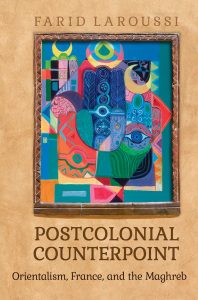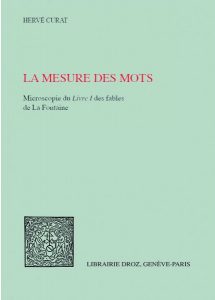Le récit de voyage (19e-20e siècle)
(Cross-listed with FREN 329-930)
Ce cours est offert à Lyon, France (May 16 – June 25, 2016)
Le récit de voyage, par son double statut à la fois littéraire et documentaire, est on objet propice à des usages et à des lectures multiples. Son étude exige la prise en compte de la dimension esthétique que suppose toute pratique d’écriture, de la dimension informative liée à la relation d’une expérience concrète, mais également de la dimension réflexive qui nait de la rencontre avec l’altérité. En dépit des difficultés soulignées par de nombreux critiques à définir avec précision les limites d’un genre foncièrement protéiforme et investi de diverses fonctions selon les époques, les travaux abondants qui lui ont été consacrés ces dernières années ont bien fait voir toute la richesse que cet objet était susceptible d’offrir à l’historien, au géographe, au sociologue, à l’anthropologue et au critique littéraire. L’intérêt qu’on porte encore de nos jours au récit de voyage se mesure d’ailleurs à son développement éditorial spectaculaire, aux festivals qu’on lui consacre un peu partout sur la planète ainsi qu’à la facilité avec laquelle il s’est emparé des nouveaux supports de diffusion comme le bloque. Il n’est aujourd’hui pas un voyage qui ne s’accompagne d’une éventuelle mise en récit.
À partir d’une analyse de quelques oeuvres représentatives, nous retracerons les grandes étapes qui ont marqué la pratique du récit de voyage en France du XIXe siècle à nos jours. Nous en interrogerons les formes, les thématiques et les enjeux, et nous tenterons d’évaluer nos pratiques contemporaines en les comparant à celles qui ont motivé l’entrée du genre dans la sphère de la littérature. Le début du XIXe siècle marque en effet le moment où le récit de voyage devient le lieu d’un travail esthétique et se constitue en pratique littéraire. Sous l’impulsion des voyageurs romantiques, attirés par les fantasmes d’un exotisme qu’ils contribuaient eux-mêmes à produire, et des éditeurs qui y verront un genre susceptible de répondre à la fascination d’un public avide de découvrir des cultures et des territoires inconnus, le genre a fini par acquérir ses lettres de noblesse. Si les visées expansionnistes des empires européens ne sont évidemment par étrangères à son essor, les mouvements de décolonisation de la seconde moitié du XXe siècle sont à l’origine d’une relecture critique qui a contribué à faire du récit de voyage un lieux privilégiés pour l’étude du rapport à l’altérité et de sa représentation. La nécessité de revisiter les échanges, les rapports de force et les phénomènes d’hybridation culturelle qui ont accompagné l’histoire et la littérature européennes des deux derniers siècles fait du récit de voyage un terrain d’exploration dont l’actualité et l’importance ne sont plus à démontrer.
Parallèlement à l’étude des oeuvres au programme, les étudiants seront invités à produire leur propre texte relatant leur expérience de voyage en France au cours d’ateliers d’écriture qui seront des sortes de compléments à la matière vue en classe. Ces ateliers donneront l’occasion de perfectionner ses stratégies d’écriture, et de réfléchir sur la manière d’organiser un récit de manière originale et vivante. Des exercices pratiques et des périodes de discussions permettront à chacun de faire le lien entre la dimension théorique du cours et la pratique contemporaine du récit de voyage.
Texts:
Eugène Fromentin, Une année dans le sahel. Flammarion, 2011.
François Maspero, Les passagers du Roissy-Express. Point (Seuil), 2004.
Nicolas Bouvier, L’Usage du monde. Payot, 2001.
François-René de Châteaubriand, Itinéraire de Paris à Jérusalem (extrait)
Stendahl, Mémoires d’un touriste (extrait)
Alphonse de Lamartine, Voyage en Orient (extrait)
Gérard de Nerval, Voyage en Orient (extrait)
Théophile Gauthier, Constantinople (extrait)
Course registration
Prerequisite: One of FREN 320, FREN 321, FREN 328, FREN 329, FREN 330
Language of instruction: French
 Farid Laroussi —
Farid Laroussi —